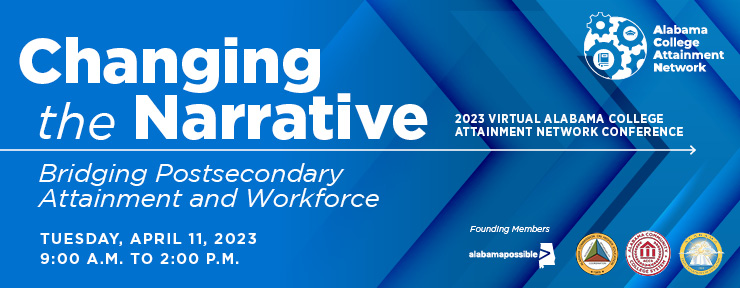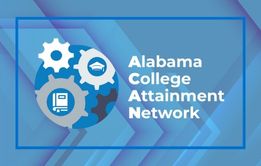Concurrent Sessions III
12:10pm - 12:55pm
Clearing the Path: Three Collaborative Student Success Programs
Presented by: Codi Plaster, Beth Hatcher, Cary Curtiss
The Pathways and Transfer Center at Auburn University has centralized efforts to decrease barriers and increase access for Alabama high school, community college, and transfer students. These collaborative programs span early college, concurrent enrollment, and student support for transfer students into a Tier 1 Research institution. This session will describe the programs & coordinated efforts of many groups & share the challenges and opportunities found in establishing, scaling, and running these programs.
Grassroots Advocacy: Using Our Collective Voice, Students (and Alabama) Can Achieve More
Presented by: Alexi Bolton, Gordon Stone
This workshop will equip attendees with skills to change the narrative of education in the workforce by engaging in advocacy. Applying a proven grassroots advocacy model, we will focus on the goal of creating a college-going culture. Attendees will explore the connection between postsecondary or higher educational attainment and a thriving workforce and better understand the related policy landscape. We will discuss strategies to successfully affect policy change and, recognizing the value that student voices bring to the table, we will provide age-appropriate tools to engage students in strategically sharing their stories.
Sense of Belonging in a Diverse, Equitable, and Inclusive Higher Education Environment
Presented by: Miquelle Jones, Misty McFadden
How are the words diversity, equity, inclusion, and belonging (DEIB) understood on your campus? From the cultural and lived experience lenses of faculty, staff, students, and college/university stakeholders, what does DEIB really mean? Why is a DEIB framework important to the eradication of preconceived biases from institutional decision making processes such as policies, procedures, and practices? Presenters will offer good practices for DEIB implementation designed to seek, understand, and promote effective communication for campus community stakeholders. Moreover, aligning these good practices with an institution’s mission and strategic goals, can sustain a continued relevance and review of creating a DEIB campus culture and community for the future.

